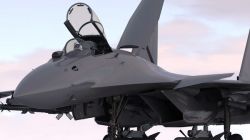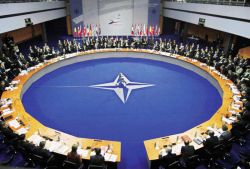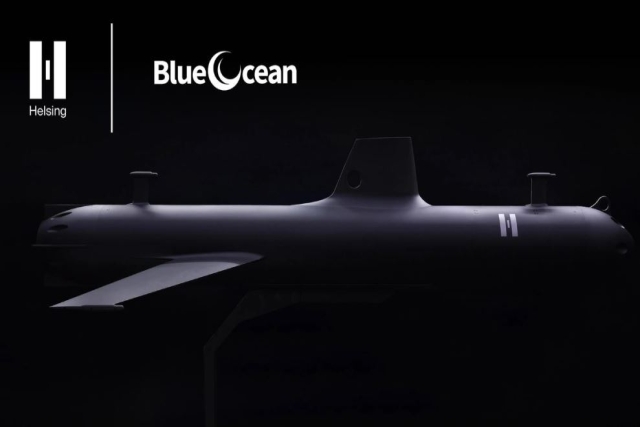Is India Caught In the US-Russia Cyber Warfare Crossfire?

There could be more to it than meets the eye in the recent downpour of leaked information on the Indian Air Force’s Su-30MKIs. Anti-Russia hackers, either acting independently or working for the US NSA and other western powers may have targeted Moscow because of the latter’s reunion with Crimea and due to Edward Snowden’s asylum in Russia.
In the first week of March 2014, hackers calling themselves the “Russian Cyber Command” (RCC) announced that they hacked into the Indian embassy in Moscow and through that accessed the Russian arms exporter Rosoboronexport stealing 100 GB of data. Of this they posted online a few copies of letters exchanged between Hindustan Aeronautics Limited (HAL) and Rosoboronexport where problems concerning maintenance of Su-30MKI were highlighted. The communication was lapped up by a section of the Indian media.
However, questions are being raised regarding the timing of release of these documents. The documents were stolen by RCC only a week after pro-Russian forces took control of the Crimean peninsula on February 26. Around that time, Edward Snowden completed nearly six months of his Asylum in Russia.
The RCC, which referred to itself as “free computer renegades and outlaws from IT Security,” said the breach and release of the documents was part of an effort to “initiate a true domestic CyberWar on Russian Military enterprises and eventually we shall deliver critical infrastructure companies on which Russian Putin’s Empire stands on”.
An Informed source told defenseworld.net that the cyber attack was American’s effort to punish Russia for Ukraine, granting Edward Snowden asylum, negotiating a nuclear accord with Iran and its support for the Syrian regime.
The source said that the timing of the cyber attack seemed exploitative and focused on Indo-Russian aviation relations and in particular the Su-30MKI which acts as the backbone of the Indian Air Force.
By exposing problems in the Su-30MKI, whoever was behind the hackers gained to discredit this fighter which is one of the main weapons exports from Russia. “The Stolen documents mention a number of aspects of Indo-Russian relationship, but publications were Su-30MKI-specific. Why?” Russia is engaged in a contract to supply 272 aircraft to India with a possibility of additional orders. Showing this fighter in poor light will impact its image negatively in India.
On March 21, a US official was quoted as saying in western media, “US spy agencies are not waging a vast industrial espionage campaign on behalf of American companies as alleged by intelligence leaker Edward Snowden’. But he also admitted that USA practices industrial espionage when proliferation of nuclear or other weapons comes up. The same person stated, that such espionage ‘would be plausible and justified for the agencies to hone in on a company such as Russian-owned Gazprom”.
“Targeting individual entities and hurting commercial interests in a preferred method of US information warfare”, the source added.
The cyber attacks between the two countries seem to be growing with intensity after the official website of the Crimean referendum had been down due to a cyber-attack that originated from the US, Crimean authorities said on March 16.
The exact location from which the website’s servers were attacked was Illinois University, Crimean minister of information and mass communications Dmitry Polonsky told Itar-Tass news agency.
“This place turned out to be the Illinois University at Urbana-Champaign. A massive scanning of the servers took place from there before the attack,” Polonsky said.
Several public NATO websites also fell victim to widespread cyber attacks last month.
The so-called "distributed denial of service" (DDoS) attack, in which hackers bombard websites with requests causing them to slow down or crash, also hit the site of a NATO-affiliated cyber security center in Estonia. NATO's unclassified e-mail network was also affected, according to Reuters.
A group calling itself "cyber berkut" said the attack had been carried out by patriotic Ukrainians angry over what they saw as NATO interference in their country.













